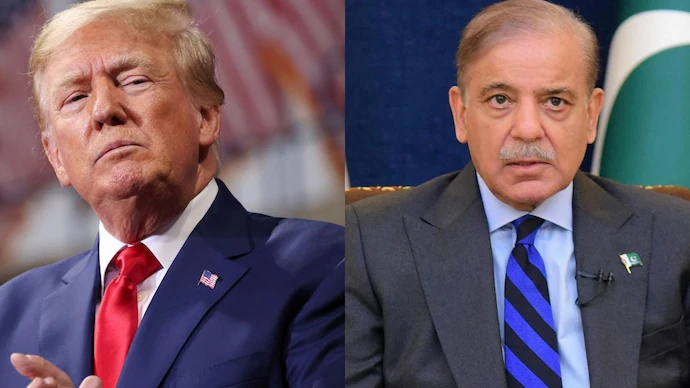By Ijaz Yousafzai
Pakistan energy sector has a huge potential to beckon foreign investors. This manifestation arises from the fact that the country has recently concluded deals with various states and multinational corporations.
In addition to this, the recent statement by the US president on cooperation between the US and Pakistan in the petroleum development sector has had a huge impact on the regional strategic outlook. This move is widely deemed as a historic diplomatic feat for Pakistan, as it may also result in tariff relief. Donald Trump has made it clear that his country has concluded a deal with Pakistan. Under this understanding, Washington and Pakistan will work together to develop the latter’s massive oil reserves.
Although he hasn’t mentioned the terms of the deal, but this prospective cooperation may largely cover two main areas of the petroleum sector, i.e. exploration and refining. However, for all such operations, a supervising company has yet to be selected.
The strategic aspect of Pak-US energy co-operation is largely clear. Most strategic analysts suggest that the US-China rivalry in the current multipolar order is the main driver behind such cooperation as Washington naturally feels very much concerned about China’s footprint in Pakistan. This assertion gives credence to the idea that Washington seeks to demonstrate its strategic presence in the region. The state of affairs simply implies that Pakistan maintains a balanced foreign policy towards both Beijing and Washington. To my amusement, all these developments are happening in such times when Islamabad is badly marred by massive economic deficits and political uncertainty. This diplomatic posture of Islamabad has historically existed as it has once proved to be Washington’s gateway to Beijing. Remember, foreign secretary Hennery Kissinger visited China secretly in July 1971, which was quickly followed by then US president Richard Nixon’s official trip to the country in February 1972.
Besides this, the Saudi oil giant Aramco has also penetrated into the Pakistan energy sector by establishing its first branded gas stations in various cities. Aramco is also pursuing the establishment of a multibillion-dollar oil refinery project in Gwadar. In February 2019, during his visit to Islamabad, Saudi Crown Prince Muhammad Bin Salman announced that the KSA would invest $10 billion to establish an oil refinery, and another one billion for a petrochemical complex in the strategic Gwadar city.
Pakistan’s current foreign debts and liabilities stand at $133 billion, besides other economic woes. To overcome this economic and financial crisis, Pakistan needs an effective policy aimed at utilizing its oil and gas reserves. According to the US Energy Information Administration (UEIA), Pakistan’s proven oil reserves are estimated at 353 million barrels while nine billion barrels of technically recoverable oil reserves. In my opinion, Islamabad should devise a 10-year economic restructuring and recovery plan to properly utilize its oil gas reserves. In order to mitigate both political and economic challenges, an honest effort is necessary. Pakistan, while leveraging its strategic importance, should work to compel powers such as the USA, China, and Middle Eastern monarchies to help resolve its political and security crisis.


